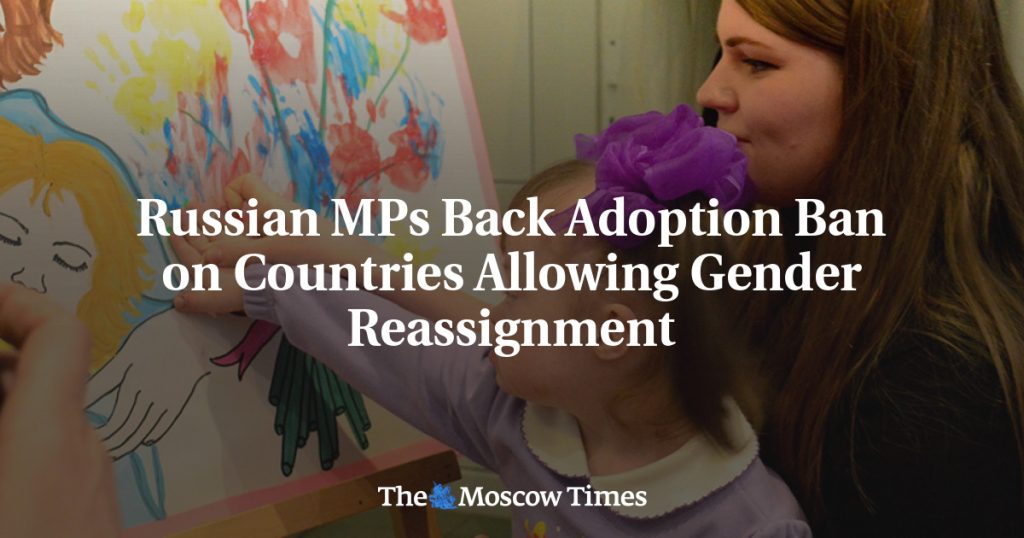Russia’s parliament recently voted to support a bill that would ban the adoption of Russian children in countries that allow gender reassignment. This is part of a series of ultra-conservative social measures that have been implemented in Russia. The bill would specifically target citizens of countries that authorize gender reassignment through medical intervention or allow individuals to change their gender on official documents. This move is part of a larger trend of Russia reinforcing conservative, anti-liberal values since the launch of the war in Ukraine.
Lawmakers in Russia have expressed a desire to prevent adopted Russian children from undergoing gender reassignment procedures abroad. State Duma Speaker Vyacheslav Volodin stated that the law aims to protect children from ending up in countries where same-sex marriage and gender reassignment are allowed. The bill received overwhelming support in its first reading, with only one lawmaker voting against it. The adoption of Russian children by foreign citizens has significantly decreased in recent years, with only six adoptions reported in 2023.
The conflict in Ukraine has also affected adoption processes, with Russia considering banning adoptions to “unfriendly countries”. The logistical challenges of traveling to Russia for adoption have also complicated the process for prospective parents. The Kremlin has been trying to address Russia’s demographic decline, worsened by the war in Ukraine, which has led to a decrease in the birthrate. Lawmakers have raised concerns about children being treated as commodities and have questioned the country’s demographics and traditional values in the adoption process.
The recent bill on banning adoption by parents from “unfriendly countries” is a revised version of an earlier proposal from 2022. The term “unfriendly countries” is used by Moscow to refer to states that have sanctioned Russia for its actions in Ukraine. Lawmakers have stated that the hybrid war against Russia involves protecting traditional values and preserving the country’s identity. Russia has been hostile towards LGBTQ+ individuals for years, with laws prohibiting gender reassignment and labeling the international LGBT movement as extremist.
President Vladimir Putin has been vocal in his criticism of gender reassignment and LGBTQ+ individuals, reflecting the larger conservative stance of the Russian government. The adoption bill is part of a broader trend in Russia towards reinforcing traditional values and distancing from liberal influences. The government’s focus on protecting children and upholding conservative values is seen as a response to external pressures and an attempt to assert Russia’s national identity. The bill still needs to pass through two more readings and be approved by Putin before becoming law.


